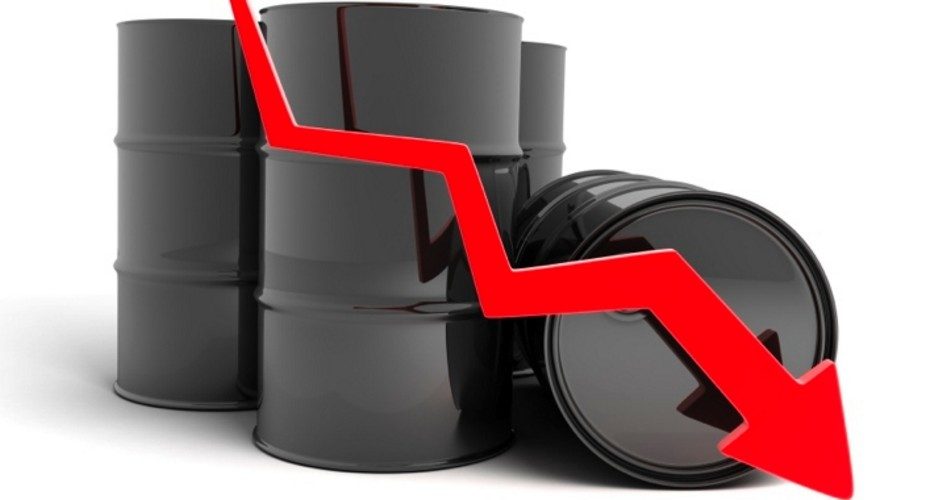
The recent bump-up in crude oil prices, from under $45 a barrel the last week in January to nearly $53 several days later have evoked predictions that the “bottom is in,” that the recovery in oil prices will be “U”-shaped, and that, given time, all will be well. The fracking industry will suffer only minor damage, gasoline prices will remain much lower, and the oil and gas industry will continue, after a brief pause, to lead the country out of the Great Recession.
Numerous factors mitigate against such a rosy outlook for oil, including the widely-heralded report on Tuesday from the International Energy Agency (IEA) which noted that the supply-demand imbalance that has pushed crude oil prices down will remain in place at least through the end of the year. After reviewing the IEA report, John Kilduff, a partner in an energy hedge fund, told Reuters: “It’s the battle of the oil outlooks playing out again. The IEA report is a good reminder that there’s still plenty of supply to come and it doesn’t give much hope for the bulls who say we’ve hit bottom and are now on the way up.”
The report noted some shrinkage in capex and rig count that will begin to remove some of that “excess” supply from the market, but not before new lower lows are put in place. It suggested that the oversupply coming on top of slowing demand could result in prices dropping as low as they did in 1998 when crude dropped below $12 a barrel.
Most commentators have left out of the discussion any political motivations on the part of Saudi Arabia to keep crude oil prices low, perhaps much lower, as part of its plan not only to eliminate marginal high-cost tight oil producers (frackers) in the United States but to punish its Russian and Iranian enemies for their continued support of rebels in Syria. On February 3, three journalists wrote of Saudi Arabia’s intentions in the New York Times, quoting some Saudi “officials” as saying their moves to push crude oil prices down are giving them “some leverage over Mr. Putin.” They noted:
Russia has been one of the Syrian president’s most steadfast supporters, selling military equipment to [Assad’s] government for years to bolster [his] forces in their battle against rebel groups, including the Islamic State, and supplying everything from spare parts and specialty fuels to sniper training and helicopter maintenance.
All of which takes enormous amounts of cash that Russia has precious little of, suffering a negative cash flow of an estimated $100 billion a year as crude prices have dropped below the $100-a-barrel mark that Putin needs just to balance his budget. If one can starve the beast that is feeding your enemy, so the Saudis appear to think, then one can starve the enemy.
The writers were certain of their position that Putin would finally give up his expansionist ambitions, slink back into his cave, and let the world alone: “Russia is feeling financial pain and diplomatic isolation because of international sanctions stemming from its incursion into Crimea and eastern Ukraine, American officials said.”
Any pain being inflicted by lower crude oil prices has yet to change Putin’s behavior, however. After 17 hours of negotiations, Putin agreed yesterday to a temporary cease-fire on Ukraine’s eastern front that cemented into place the territory already gained. It’s likely to be a classic case, once again, of “what’s mine is mine, and what’s yours is negotiable.”
As the Wall Street Journal noted, “the deal calls for a cease-fire starting Sunday, with each side pulling back [their] heavy weapons, as well as steps to give greater autonomy to the Russia-backed separatist regions in eastern Ukraine.” (Emphasis added.)
Even demands by Ukrainian president Petro Poroshenko that his country be given control of its own borders fell on deaf ears: Such discussions about that will be put off until the end of 2015. By that time, of course, the issue will long have been settled on the ground. One of the parties to the cease-fire, Lithuanian President Dalia Grybauskaite, called the agreement “absolutely weak.… The main part of a solution is the control of the borders. It was not agreed upon and was not solved.” But Putin could hardly restrain himself, exclaiming after the marathon session: “We’ve agreed to a lot, in my view.”
All of which means that Saudi Arabia’s attempt to force Russia to become more compliant and less intransigent isn’t working. Which means that the Saudis will be greatly tempted not only to keep on pumping to keep oil prices low, but will do what it can to pressure those prices further. First, that country still has either the fourth or the fifth largest proven oil reserves in the world. Second, even though its cash flow has been going negative to the tune of about $40 billion a year thanks to those lower prices, it holds nearly three-quarters of a trillion dollars in foreign reserves, more than sufficient to outlast its enemies.
As a nice bonus for the Saudis, those lower prices are also pressuring Iran, whom the Saudis consider not only a rival but their enemy owing to their alleged efforts to become a nuclear threat in the region.
To inflict serious pain onto Putin, crude oil prices will have to drop much further, and stay down much longer, than most prognosticators are suggesting. Charts and graphs of supply and demand aside, it’s the political side of crude that is currently driving prices lower.
A graduate of an Ivy League school and a former investment advisor, Bob is a regular contributor to The New American magazine and blogs frequently at www.LightFromTheRight.com, primarily on economics and politics.



